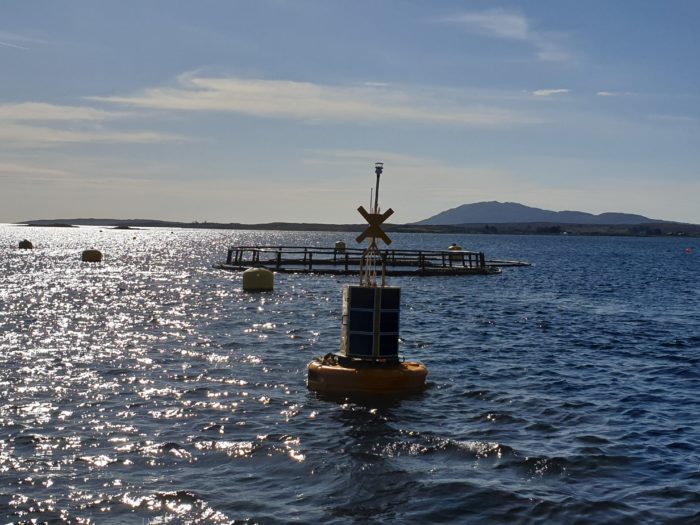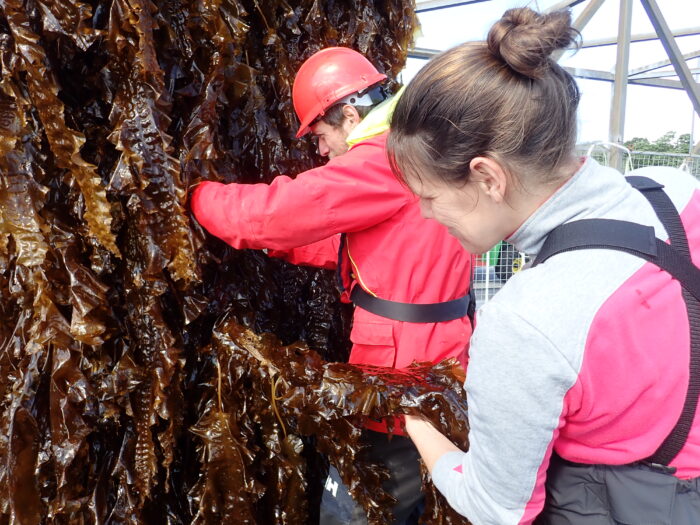REGULATION LANDSCAPE
The European Union acknowledges the potential of the aquaculture sector to secure its position in the global market, become a reference to circular economy, and create thousands of jobs in Europe
The European Union acknowledges the potential of the aquaculture sector to secure its position in the global market, become a reference to circular economy, and create thousands of jobs in Europe. The European Union has encouraged sustainable aquaculture through policies and research initiatives. The lighthouse of these policies is the Blue Growth Strategy (2012), the Integrated Maritime Policy’s contribution to achieve the goals of the Europe 2020 Strategy for smart, sustainable and inclusive growth.
This initiative includes additional strategies such as the EU Atlantic Action Plan (2014-2020), Horizon 2020 (under which framework IMPAQT is developed) and the European Maritime and Fisheries Fund (EMFF), among others.
CURRENT REGULATION LANDSCAPE
New Strategic guidelines for a more sustainable and competitive EU aquaculture (2021-2030): a common vision for EU countries, the aquaculture sector and other stakeholders to support the green transition
Recently, the European Commission has adopted new strategic guidelines and EU countries have reviewed their national strategies in light of these. Through the Strategic guidelines for a more sustainable and competitive EU aquaculture for the period 2021-2030, the Commission provides a common vision for EU countries, the aquaculture sector and other stakeholders to develop the sector in a way that contributes directly to the European Green Deal and the Farm to Fork Strategy. Therefore, the sector is working towards a green transition in the blue bioeconomy by promoting research and innovation, precision aquaculture systems, organic aquaculture, as well as production concepts away from monoculture such as IMTA.
These guidelines were developed to help building an EU aquaculture sector that is competitive and resilient; ensures the supply of nutritious and healthy food; reduces the EU’s dependency on seafood imports; creates economic opportunities and jobs, and becomes a global reference for sustainability. They should also help EU consumers make informed choices of sustainable aquaculture products and to ensure a level playing field for aquaculture products marketed in the EU.
The heart of IMPAQT, IMTA, is acknowledged as an aquaculture system with lower environmental impact to be applied as one key action of the green transition, with a desirable environmental impact (e.g., lower carbon and environmental footprint, take advantage of all the nutrients and organic matter available which usually end as waste). IMPAQT project, in collaboration with the H2020 European projects AquaIMPACT, ASTRAL, and iFishIENCi, has made a relevant contribution to stress multi-trophic systems as a sustainable solution for the aquaculture industry, highlighting the circularity embedded. This was carried out by participatin in the European consultation regarding the update of these guidelines. Their participation was a high-value action, since the inclusion of this approach as key to apply to achieve a more sustainable aquaculture sector.
Five key messages regarding IMTA in Europe
Despite the efforts undertaken by the European Union and the aquaculture stakeholders in recent years, certain messages remain about IMTA in Europe which need to be addressed and understood:
Seven specific barriers for IMTA at the EU Level
Thanks to the work performed in previous European projects, such as INTEGRATE (INTERREG) and IDREEM (EU FP7), IMPAQT can build upon gathered knowledge when addressing remaining obstacles regarding IMTA production in the European legislation. In this sense, and considering the above projects, the following bottlenecks have been identified and selected as aspects that can be involved in the project´s regulation and standardization objectives:
IMPAQT recommendations regarding IMTA
Throughout its development, activities and interactions with stakeholders, IMPAQT project collected and remarks some recommendations to the policy approach.
SUSTAINABILITY ASPECTS
The confidence of the consumers in aquaculture products depends on numerous parameters and there are varied factors affecting their consumption. Food safety, food quality, health impacts, animal welfare or sustainability are aspects directly associated to the rising awareness and they are all holistically considered in the IMPAQT project.
Regarding the sustainability dimension, aquaculture products consumers are increasing the aware of sustainability issues, especially in Western and Northern EU Countries (European Market Observatory study, 2017[1]). The sustainability of the seafood products arising from the IMPAQT project is being addressed though the corresponding assessment carried out in WP5, which will allow communicating the environmental, social and economic indicators of these products.
Whenever this assessment is based on standardised methodologies and is verified, seafood consumers might increase their confidence in these products, since transparent and robust information on the sustainability profile is provided. In addition to this, the sustainability assessment developed in the IMPAQT project might also mean a starting point for the pilot’s sites that are seeking to work under some existing certification schemes (such as ASC, Global GAP, GAA).


These certifications are informed to the consumers through the corresponding labels, which show how “good” the farming methods are, mainly for the environment dimension. In this context, it would be relevant to assess how the existing standards recognise the IMTA systems as a good environmental practice.
Developing carefully defined aquaculture standards and rigorous certification processes is key to sustainable aquaculture progression and growth. Aquaculture standards and certification schemes provide practical and functional sustainability benchmarks, thus giving consumers more accurate information on sustainable production methods of their seafood choices. In this line, several actions were carried out by IMPAQT:












